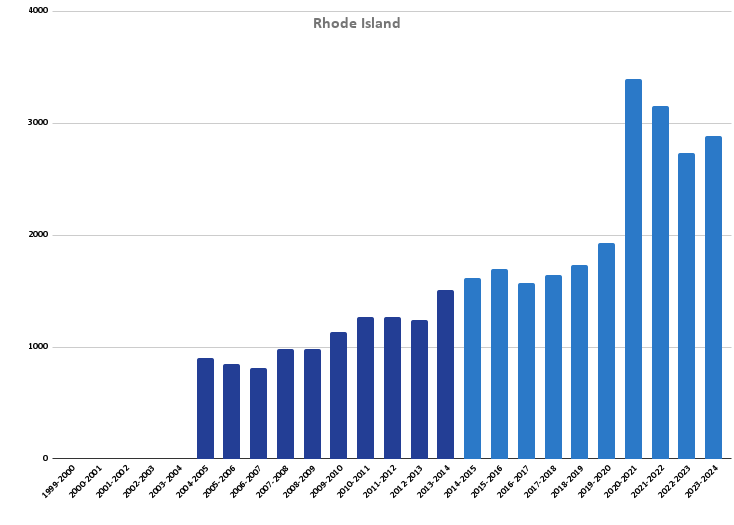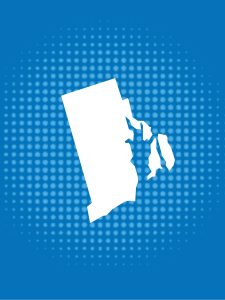Rhode Island is the only state where the homeschooling program must be approved by the local school committee. Some states, like South Carolina, have an option where the local or state public school entity is involved, but this is the only state where approval is required.
History
Rhode Island, located in the northeastern United States, legalized homeschooling in 1984. Homeschools are not considered private schools in Rhode Island and must meet other requirements, including local public school committee approval.
Regulation
Rhode Island offers one option for homeschooling. The state requires parents who elect to homeschool their children, ages 6 to 18, to contact their local public school district superintendent for more information. While the Rhode Island Department of Education provides some general information on homeschool policy, the local district level makes all final decisions.
The state does not have a minimum parental education requirement to homeschool. Generally, parents must present their homeschool plan to the local school committee for approval. The plan should include information about instruction methods, the subjects and curriculum, and agreement on assessments and progress evaluation. Instruction in certain subjects is required, and attendance records must be kept. Rhode Island requires an annual evaluation but offers flexibility in its format. Assessments or other agreed-upon methods are acceptable.
The general attendance requirement is five and a half hours daily for at least 180 days a year. Rhode Island is one of only a few states that requires all instruction in English.
The public school must loan textbooks to homeschool parents in at least science, math, and foreign languages. Otherwise, homeschooled students’ access to public school resources is limited to extracurricular activities. Homeschooled students may ask for permission to participate in other activities and courses, and the State Commissioner of Education encourages districts to allow homeschooled student participation when space is available, but there are no official policies outlining access for nonpublic students. Similarly, students with special needs are advised to check with their local district for service eligibility.
State Data
The information on homeschool participation provides insight into homeschool participation in the state. For example, around 1,200 students reported homeschooling in 2010, which increased to almost 1,700 prior to the pandemic.

U.S. Census estimates indicate that around 4.4% of Rhode Island families homeschooled in the spring of 2020, increasing to 7.3% by the fall of 2020. These percentages are lower than the national averages of 5.4% and 11.1% during the same time. Based on U.S. Census data, our calculations indicate that about 2.86% of K-12 students in Rhode Island were homeschooled during the 2022-23 school year, and 5.32% during the 2023-24 school year. Due to survey changes, the data from 2020 reflects the percentage of households, while the data from following years reflects the percentage of students.
Cross-Sector Comparison
During the 2019-20 academic year, 0.8% of Rhode Island’s K-12 students were homeschooled. Homeschool participation in the state was much less than the 10.0% of private school students. Homeschool participation was also much lower than the 6.3% of Rhode Island students attending charter schools. In 2021-22, 1.3% of Rhode Island’s K-12 students were homeschooled, 10.8% went to private schools, and 7.2% attended charter schools.


School Choice Context
In addition to homeschooling, Rhode Island parents have some educational choices available. These options include open enrollment in traditional public schools through inter- and intra-district school choice and a few magnet and charter schools. Rhode Island has one private school choice tax credit scholarship for low-income students, but homeschooled students do not appear to be eligible.
Commentary
Rhode Island could increase educational opportunities for all nonpublic students by opening access to more public school offerings like sports, courses, and extracurriculars.

-
7.3% Families
Around 7.3% of families in Rhode Island homeschooled during the height of the pandemic (Fall 2020).
-
1984 Legalized
Homeschooling was legalized in 1984 in the state of Rhode Island.
-

-
More Information
7.3% Families
Around 7.3% of families in Rhode Island homeschooled during the height of the pandemic (Fall 2020).
1984 Legalized
Homeschooling was legalized in 1984 in the state of Rhode Island.

More Information
Last updated March 2025.